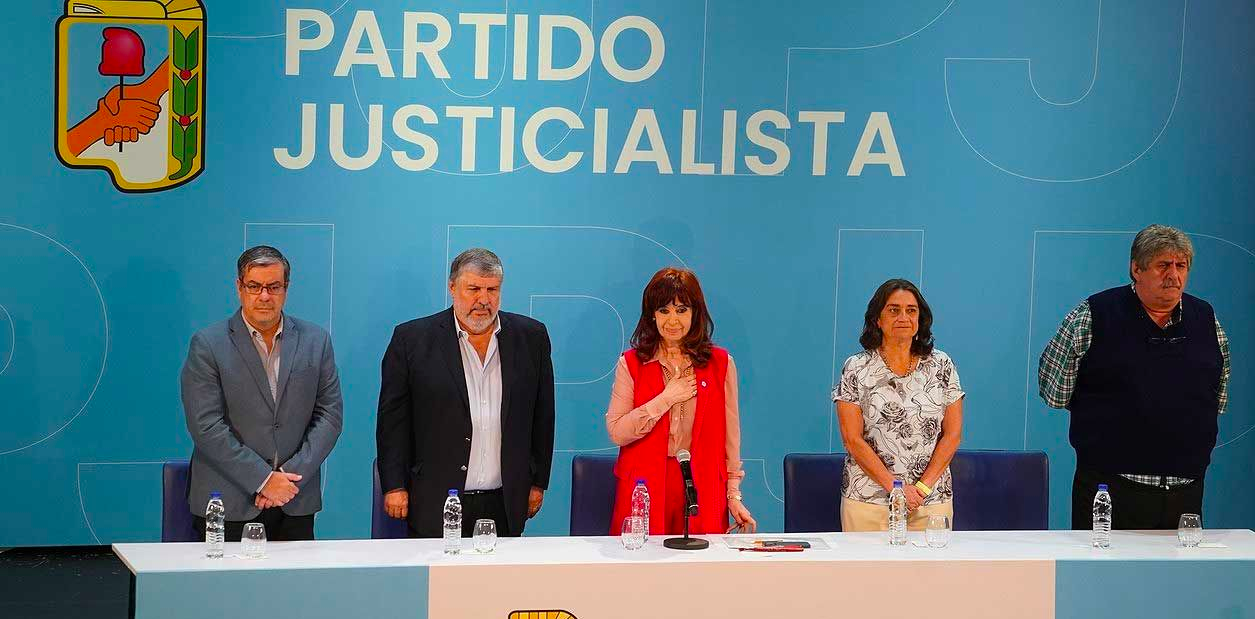
Published 13/12/2024 16:18 | Edited 12/13/2024 16:46
In a symbolic act full of Peronist leaders, former Argentine president Cristina Kirchner (2007-2015) officially took office as president of the Justicialist Party (PJ) this Wednesday (11), at an event held at the Metropolitan University of Education and Labor (UMET), in Buenos Aires. Kirchner is now the main leader of the political force opposing the government of ultraliberal president Javier Milei.
During the speech, Kirchner spared no criticism of Milei’s policies, highlighting the impact of fiscal adjustment and deregulation measures on the country’s economy. “The party must form, inform, plan, publicize and organize: these are the five fundamental missions that we must fulfill”, he stated in front of a packed auditorium.
Kirchner also alluded to Milei’s recent speech, marking the first year of his government, as “disconnected from reality”. “He doesn’t have a productive model. It is clear that your measures are worsening the social and economic crisis”, he added. Argentina currently faces annual inflation of 166% and has 52.9% of the population living below the poverty line.
Consolidation and internal challenges
Cristina Kirchner was elected to the presidency of the PJ in November, after the only competing candidacy, led by governor Ricardo Quintela, was invalidated by the courts. Despite already acting as a de facto leader, his formal inauguration marks a new stage in the attempt to reorganize Peronism, a movement that has faced significant internal divisions.
One of the main challenges of his leadership will be to unify the party in the face of growing tensions, especially due to the collaboration of some Peronist leaders with Milei’s government. Recently, Kirchner sent a letter to Peronist deputies and senators, asking them not to “ignore or accept” the behavior of party members who align themselves with the governing coalition La Libertad Avanza.
Another central point is the coordination for the 2025 legislative elections. During a recent meeting in Moreno, Cristina Kirchner defended that the provincial and national elections be held on the same date. According to her, breaking up the electoral calendar would harm the central narrative of opposition to Milei’s policies. Voting on another date, according to her, would allow the Government to focus on local management and divert the discussion to issues such as insecurity in the suburbs. Axel Kicillof, governor of the province of Buenos Aires, has not yet defined his position on the issue, but is facing pressure to align himself with the party’s national strategy.
Peronist unity in focus
Despite the differences, Kirchner’s inauguration was interpreted as an important step towards reorganizing Peronism. Leaders such as Sergio Massa, a former presidential candidate and influential figure in the coalition, highlighted the need for unity. “Without cohesion and without a country project that offers a future for society, there is no destiny,” said Massa. Cristina also made reference to Milei’s economic policy, which threatens to further erode national industry with its unrestrained openness.
Kicillof’s absence from the event, however, generated discomfort among Kirchner’s allies. Maria Teresa García, senator from the province of Buenos Aires, criticized the governor’s lack of public support, highlighting that his presence was crucial to show unity in the face of the challenge of facing Milei.
Leadership and mobilization
Since leaving the Casa Rosada in 2023, Cristina Kirchner has led mobilizations across different regions of the country, reinforcing her presence in electoral strongholds of Peronism, such as the suburbs of Buenos Aires. During these visits, he has criticized the deindustrialization policies and dismantling of social programs promoted by the current government.
With the formal leadership consolidated, Cristina Kirchner plans to intensify the organization and mobilization of the PJ for the upcoming electoral scenario, seeking to strengthen the opposition and regain the population’s trust at a time of deep crisis in the country.
Source: vermelho.org.br

